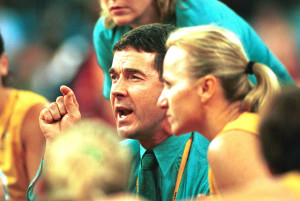- Calls to this hotline are currently being directed to Within Health or Eating Disorder Solutions
- Representatives are standing by 24/7 to help answer your questions
- All calls are confidential and HIPAA compliant
- There is no obligation or cost to call
- Eating Disorder Hope does not receive any commissions or fees dependent upon which provider you select
- Additional treatment providers are located on our directory or samhsa.gov
College Coaches & Eating Disorders: What They Need to Know
Article Contributed By: Theodore E. Weltzin, MD, FAED

The Role of Coaches
That’s why coaches have a responsibility to be aware of the symptoms of eating disorders and how they can negatively impact an athlete’s performance. It is particularly important when coaching sports that focus on:
- Appearance, such as gymnastics
- Weight, such as wrestling
- Track and field, which features anti-gravity events like the high jump
Being on the Lookout for Signs
It’s imperative to be alert to unexplained weight loss or increased moodiness. People who are struggling with eating disorders often become more self-absorbed, depressed, irritable or anxious. So if you observe an athlete who is suddenly thinner and exhibiting depression or other signs of mental strain, take note.
Be careful about how you judge your team and how much emphasis you put on body image versus character and hard work. You need to set an example of a healthful relationship with food.
Never label a food, such as sugar or carbohydrates, as a “bad” food. There is nothing inherently bad about sugar, and nutritional advice should be given only by those with dietary expertise.
How the Pursuit of Perfectionism Can Be a Trigger
Typically eating disorders start small and then burgeon out of control. Most healthy athletes start off by simply striving to improve their performance. They may then rationalize that, if losing five pounds makes a difference, wouldn’t losing 10 pounds be better?
Such thoughts can result in an obsession with eating and/or exercising, which ultimately hurts performance.
Proper education can help prevent eating disorders and this loss of control. Young adults often receive education and information about alcohol abuse, pregnancy, STDs and other health issues – why not eating disorders?
How Coaches Can Educate and Be a Role Model
Coaches could educate athletes about the destructive nature of eating disorders in a team meeting before the season starts. Address the fact that not only do eating disorders negatively impact performance, they also can result in serious health risks such as:
- Heart failure
- Osteoporosis
- High blood pressure
- Diabetes
- Peptic ulcers
- Fatigue
- Malnutrition
- Even death
Emphasize that successful athletes use food as part of their success by making sure they’re eating enough food and the right kinds of calories to perform well, rather than seeing food as a negative. Athletes need to eat in anticipation of performance as well as after competition.
Use examples, such as swimmer Michael Phelps, whose hearty meals before and after practice fueled his Olympic wins.
Armed with this knowledge, hopefully young athletes will be able to weigh the risks vs. benefits of eating disorders and decide in favor of good health.
The Resources Available to Coaches
Coaches must have resources to help them in such education, prevention and treatment efforts. If you’re working with high-risk athletes, have nutritionists and experts in eating disorders as part of your team who can be consulted if you suspect a problem.
Questions to ask can include:
- These are the symptoms I am seeing – should I be concerned?
- If so, what should I do?
- How/where can I get help for my athlete?
For any intervention, you need to have a course of action. Once you express a concern, you will want to be able to direct students to a place they can get help.
Treat an eating disorder as you would any other illness or injury. Compare it to a runner’s knee injury – you would suggest the athlete see an orthopedist if he was limping, wouldn’t you?
And, if he decided not to be evaluated and continued to limp, he would not be allowed to participate in track. The individual’s well-being must come before any concern for a win.
Getting Help, Not Giving Up

While some athletes are capable of continuing to compete during treatment for an eating disorder, others may find it beneficial to step away from a sport and take a break. As with any health issue, decisions need to be made on an individual basis.
Above all, it’s important for coaches to remember they set the tone for their teams and play a huge role in not only athletes’ physical but mental health. As such, they need to be aware and available to help any team members who may be struggling with an eating disorder.
Top 5 Tips for Coaches
- Have access to nutrition experts who can provide accurate information to athletes.
- Be aware of eating disorder symptoms, such as purging or other unusual eating behaviors.
- Have an eating disorder expert available whom you can consult about any concerns.
- Educate athletes about eating disorders just as you would about any other health issue.
- If you suspect an eating disorder, talk to the individual directly, recommend they seek treatment and provide them with a resource, ideally someone you know can work well with athletes.
About Rogers Memorial Hospital
Rogers Memorial Hospital was the first provider in the nation to offer exclusive eating disorders treatment for men and boys and is the only program in the country to offer a specialized residential eating disorders treatment program for adults with co-occurring anxiety disorders.
About the author
Theodore E. Weltzin, MD, FAED, is the medical director of Eating Disorder Services at Rogers Memorial Hospital. He is a leading authority in the treatment and research of eating disorders. He has specialized in the field of eating disorders treatment for more than 20 years and holds several leadership positions and academic posts.
He has trained more than 100 clinicians in the field and developed innovative programs addressing the unique needs of eating disorder patients, especially patients with eating disorders and anxiety and males with eating disorders. Dr. Weltzin has appeared as an expert on CNN, CBS Morning News, Good Morning America, The View and the Dr. Phil Show.
SIDEBAR
